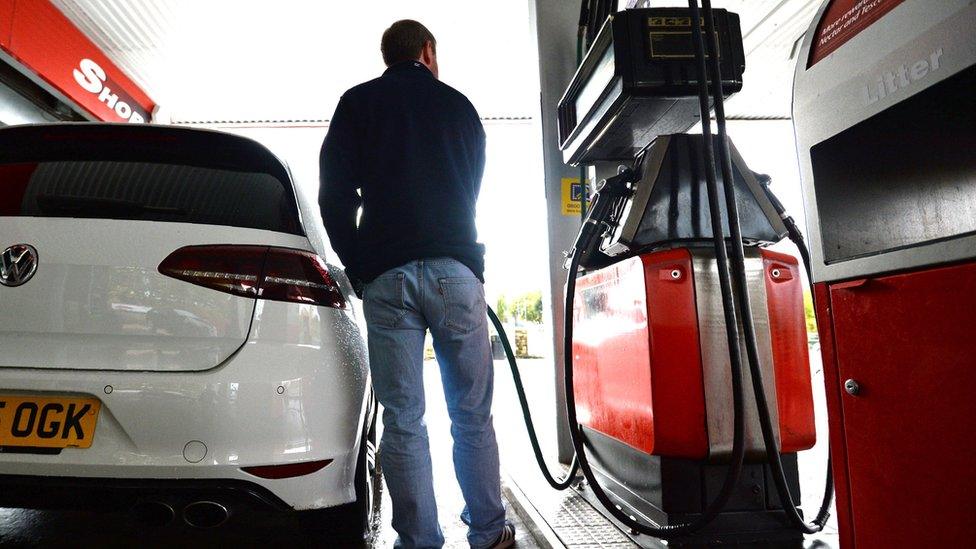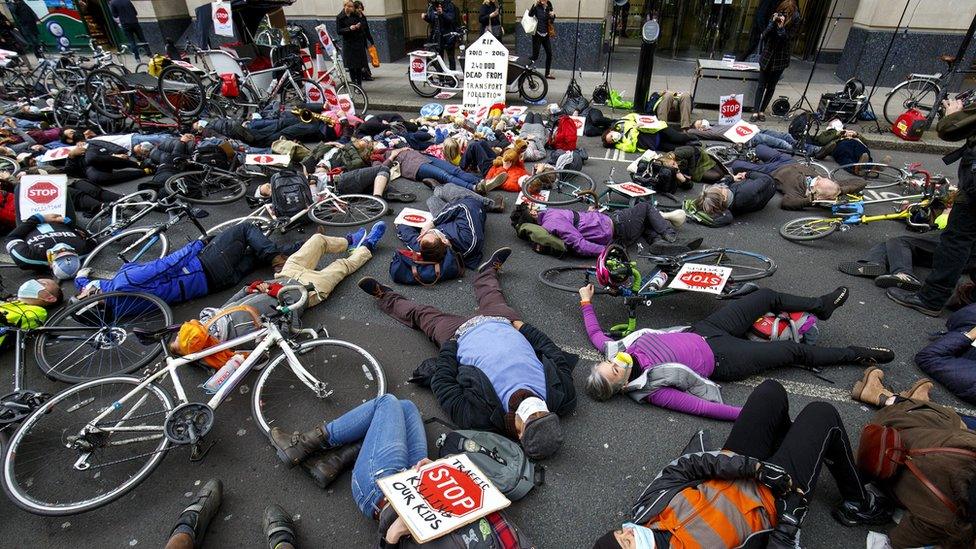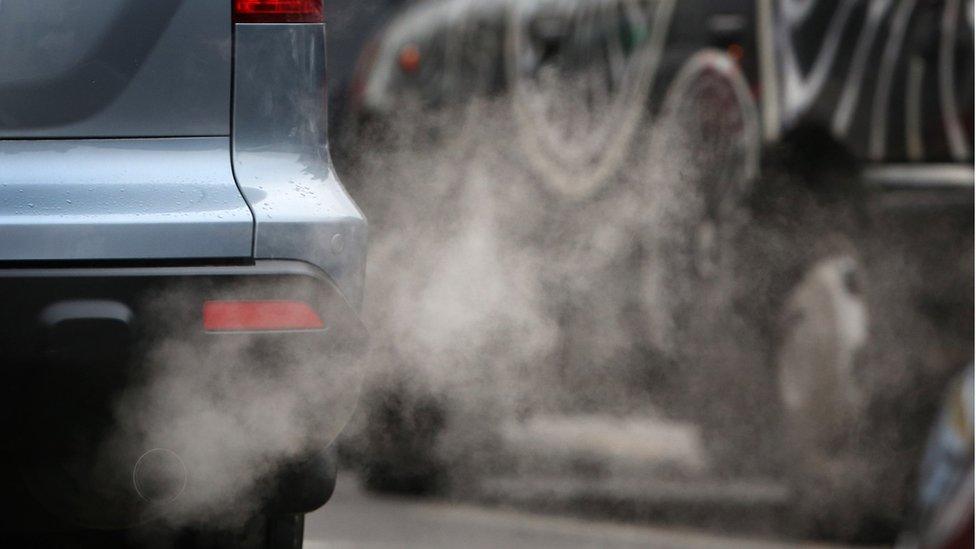UK clean air strategy: Government to publish draft proposals
- Published
- comments

Drivers of older diesel cars may be given incentives to scrap their cars under draft government plans
The UK government is set to publish a draft air pollution plan after a protracted legal battle with environmental campaigners.
It is likely to include a scrappage scheme for older diesel cars in areas with high levels of dirty air.
Speed bumps could be removed in some cities to cut pollution from cars slowing down and speeding up.
Environmental lawyers ClientEarth said they would "thoroughly analyse" the proposals.
Judicial review
According to the Royal College of Physicians, external, air pollution across the UK is linked to around 40,000 premature deaths every year.
The UK has struggled to keep within EU limits on some pollutants, particularly nitrogen dioxide (NO2), which is produced by diesel engines and is linked to a range of respiratory diseases including asthma. Some 37 of the 43 regions of the UK are in breach of NO2 limits.

Air pollution protesters have taken to the streets in the UK to demand cleaner air
Under earlier government plans, some parts of the UK would not have met EU NO2 standards until 2030. The original deadline to achieve these limits was 2010.
Exasperated by what they believed was government foot-dragging on the question of cleaner air, ClientEarth mounted a legal challenge to force faster action.
In April 2015, the UK Supreme Court ruled the government had to take immediate steps on the issue.
Unhappy with the timescales in the plan that was then produced, ClientEarth went to the High Court last November for a judicial review.
Once again the court supported the lawyers, telling the government that its scheme was "woefully inadequate" and giving ministers until 24 April this year to produce a new draft.
With a general election in the offing, the government last week asked the judge for permission to delay the draft plan. But Mr Justice Garnham disagreed and ordered publication by 9 May.
"These steps are necessary in order to safeguard public health," he said.
Earlier this week, the government said it would not appeal against the ruling and would publish.
'Toxin taxes'
In their previous plans, ministers wanted to create "clean air zones" in five cities outside London with high levels of NO2.
Only the most polluting vehicles would have to pay a charge to enter the zone under that scheme. The new draft plan is expected to create many more such zones.
Councils will be given the power to impose fines or restrictions on all polluting vehicles in these areas.

Levels of some air pollutants in London broke annual limits in just five days this year
In the worst cities, so called "toxin taxes" could range up to £20 a day but the government is said to be keen not to punish drivers who bought diesels as a result of incentives brought in by a previous Labour administration. This is something that the lawyers at ClientEarth support.
"Successive governments have encouraged people to buy diesel. We don't want to see diesel drivers vilified, and we think the plans should also include properly funded incentives to help people move to cleaner forms of transport," said ClientEarth CEO James Thornton.
"We will thoroughly analyse the government's draft plans when they are produced. If we do not think they are in line with the court order, to deal with illegal levels of pollution as soon as possible, then we will consider our next steps."
According to newspaper reports, the government has agreed to back a "targeted" scrappage scheme for older diesel cars, but limited to vehicles in areas of high pollution. There may also be funding for a retrofitting scheme to help existing diesel car and van owners cut their emissions of NO2.
The government is also said to be pushing for councils to use alternatives to charging, including the removal of speed bumps in some places and the better sequencing of traffic lights in others. Both of these measures could limit cars having to slow down and speed up repeatedly, actions that can almost double the amount of NO2 produced.
However, the idea that speed bumps which slow down traffic would be sacrificed to help clean up the air we breathe is not a welcome concept according to road safety charity Brake.
"We ought not to be made to choose between having cleaner air and safer roads," a spokesman said.
"The evidence shows that air pollution is contributing to the early deaths of thousands of people. It's now clear that there's more than one way a car can kill you."
The new proposals will be out for consultation for six weeks before the government produces a final plan at the end of July.
Follow Matt on Twitter, external and on Facebook, external.